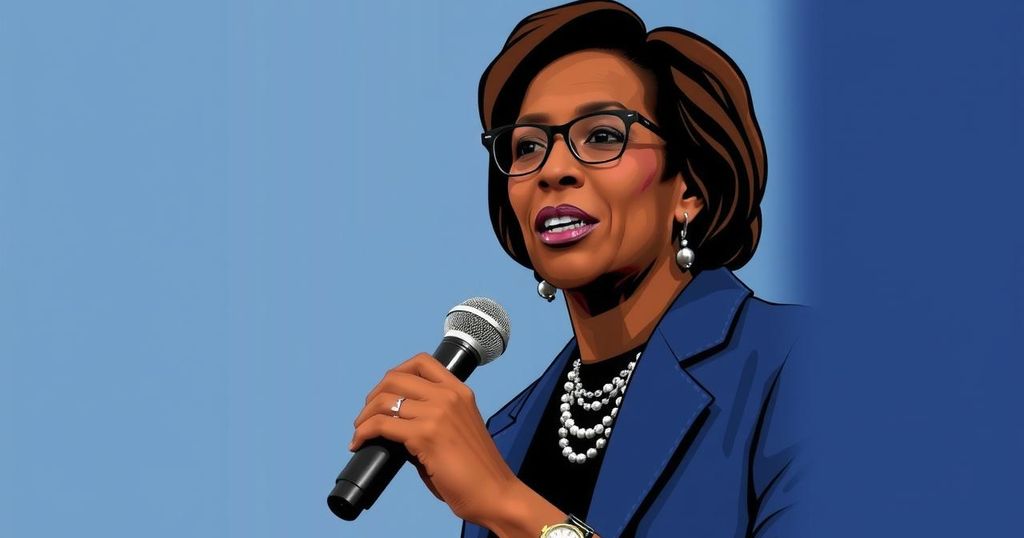The elections in Dearborn, Michigan, revealed a surprising shift toward Donald Trump among Arab American voters, marking a divergence from longstanding Democratic loyalty. Activists expressed disappointment in Democratic leadership for failing to engage adequately with their concerns, particularly regarding Palestine, while some community members began shifting their allegiance to Republican candidates. The election results signify a potential fracture in traditional Democratic support within this demographic, as frustrations grow over lack of representation and response to critical issues.
On election night, Abbas Alawieh, a Palestinian-American and political activist from Dearborn, Michigan, was unsurprised by Donald Trump’s electoral achievement, noting his improved performance in predominantly Democratic areas. Alawieh, alongside fellow Palestinian Americans, initiated the coalition “Listen to Michigan” in response to President Biden’s unwavering support for Israel, encouraging local voters to cast “uncommitted” votes in the Democratic primary to signal dissatisfaction with Biden’s policies. However, their efforts fell short, with over 100,000 individuals voting uncommitted, leading to an expanded movement that sent uncommitted delegates to the Democratic National Convention. In Dearborn, a city with a significant Arab American population, Trump’s electoral success starkly contrasted longstanding Democratic loyalty, marking a troubling shift in voter sentiment. Alawieh opted for Kamala Harris over Trump but expressed concerns that a Harris victory would perpetuate the existing turmoil faced by his family, rooted in personal experiences of violence in Gaza. Layla Elabed, a local activist and sister of Michigan Representative Rashida Tlaib, articulated her heartbreak over the election, stating that it underscored the ineffectiveness of the anti-war movement to protect vulnerable populations from ongoing violence. Elabed’s disillusionment stems not from the Democratic Party itself, but from its leadership’s refusal to acknowledge the concerns of its base. James Zogby, founder of the Arab American Institute, recognized the Democratic Party’s failure to engage effectively with Arab American voters, attributing Trump’s electoral gains to a disconnect between traditional party values and current leadership priorities. Zogby expressed frustration toward a consultant-driven approach that prioritizes fundraising over community engagement. Meanwhile, Rola Makki, a Lebanese-American Republican, expressed a mix of happiness over Trump’s win amid ongoing tragedies in the Middle East. The shifting dynamics in Dearborn reflect a broader trend of disillusionment within the Arab American community, where factors such as anti-LGBTQ messaging have resonated, leading to increased Republican support. Nonetheless, Zogby maintains hope that the movements advocating for Palestinian rights will persist as long as grievances remain unaddressed. The election has generated complex responses among Dearborn residents, reflecting a mix of apprehension and curiosity about future governmental actions towards their communities. Alawieh anticipates potential implications of Trump’s presidency for Palestinians, suggesting that the community may experience backlash or targeted actions under his leadership, fostering an atmosphere of uncertainty about their status moving forward.
The article addresses the evolving political sentiments within the Arab American community in Dearborn, Michigan, regarding the recent election outcome favoring Donald Trump over Kamala Harris and Joe Biden. It highlights the discontent among voters, particularly Palestinian Americans, stemming from the Democratic Party’s perceived indifference towards their concerns, especially in relation to U.S. policy on Israel and Palestine. The narrative captures the complexity of political choices among community members grappling with their aspirations for peace and representation in the political landscape, revealing deep-seated frustrations with both major political parties.
The outcomes of the recent election serve as a warning to the Democratic Party, showcasing a significant shift in voter alignment within the Arab American community. The dissatisfaction with the current leadership’s failure to engage with critical issues has prompted a reassessment of loyalties among voters. As the community navigates the uncertain implications of Trump’s presidency, ongoing advocacy and activism around pro-Palestinian rights will likely persist, reflecting unresolved grievances and a continued search for genuine representation.
Original Source: slate.com






